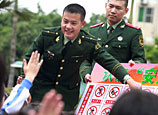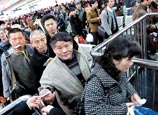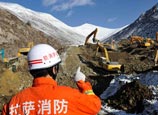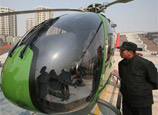
China's large and medium-sized property developers are restructuring their business by diversifying their activities or geographic presence to deal with the latest round of policy tightening.
Hong Kong-listed property developer Beijing Capital Land Ltd has quickened its step in building outlet complexes - projects integrating the residential, commercial, industrial and tourism sectors - as part of efforts to diversify its business.
In its 2012 annual report, Beijing Capital Land said the company will further promote business restructuring featuring the construction of residential and outlet complexes.
"We will push for a new business mode combining residential projects and outlet complexes and run trials in residential plus tourism and residential plus education projects to meet diversified customer needs," said Tang Jun, president of Beijing Capital Land.
The company has set up a team of 300 staff committed to the development of complexes in Beijing. The company currently has outlet complex projects in Beijing, Huzhou in Zhejiang province, Wanning in Hainan province, and Kunshan in Jiangsu province, and it plans to build them in more second-tier cities. Covering an area of more than 100,000 square meters, its Beijing outlet complex will begin trial operations in May.
Beijing Capital Land will strengthen its presence in mature markets, such as Beijing, Tianjin, Chengdu and Shenyang, according to its annual report.
Zhu Can, vice-president of Hongkun Properties Group, said the company will increase the proportion of its commercial properties and industrial parks in the coming three years.
The company has launched a luxury project in Beijing's central business district, with a unit sales price of around 80,000 yuan ($12,880) per square meter. And it plans to launch another villa project along Beijing's southern Fourth Ring Road in April.
A senior manager from Financial Street Holdings Co Ltd said the latest round of tightening measures had a very limited impact on the company, as around half of its business now comes from the commercial sector, primarily offices and retail.
According to the company's financial statement, Financial Street Holdings' sales surged 50 percent to 13.1 billion yuan in the first three quarters of 2012, with commercial business accounting for 41 percent.
"For residential projects, there is no change in our pricing strategy yet," said the manager, who declined to be named.
China Fortune Land Investment Development Co Ltd, a Shanghai-listed property developer, has focused on the construction of industrial parks, as the country's rapid pace of urbanization must be supported by an industry upgrade, especially in small cities and towns.
The company's net profits reached 1.783 billion yuan in 2012, up 31.34 percent year-on-year. And its operating profit grew 43.95 percent to 2.52 billion yuan, according to its annual report.
Qin Hong, director of the policy research center affiliated to the Ministry of Housing and Urban-Rural Development, said real estate companies should restructure their business to adapt to market changes.
"They should diversify their business lines and their business presence geographically," Qin told a forum hosted by China Index Academy.
Property developers' shares rallied on Monday, as the real estate regulations announced by a number of local governments were less stringent than expected.
Though the Shanghai Composite Index dipped 0.1 percent, property developers rose by an average of 1.46 percent.
The asset-liability ratio of China's major 100 property developers fell in 2012, the first drop in the past five years, a study showed.
The average effective asset-liability ratio for the top 100 Chinese property developers was 47.3 percent, down 1.9 percentage points year-on-year, according to research by China Real Estate Top 10 Research Institute, which includes experts from the Development Research Center of the State Council, Tsinghua University and China Index Academy.
















 Experience death, reflect life: Girl stages her own fake funeral
Experience death, reflect life: Girl stages her own fake funeral


![]()
